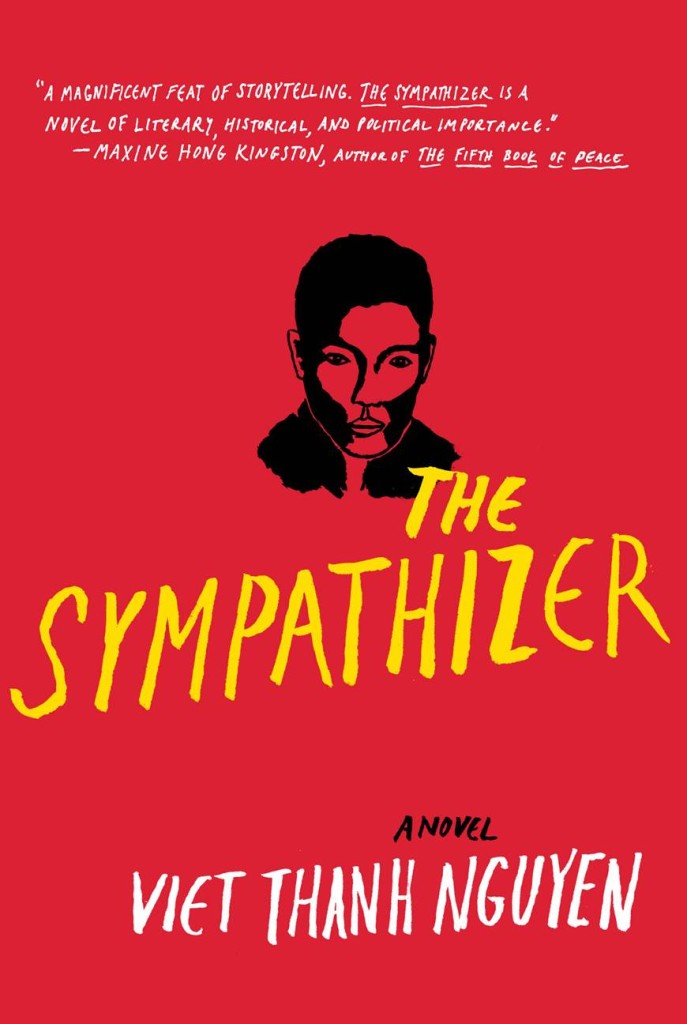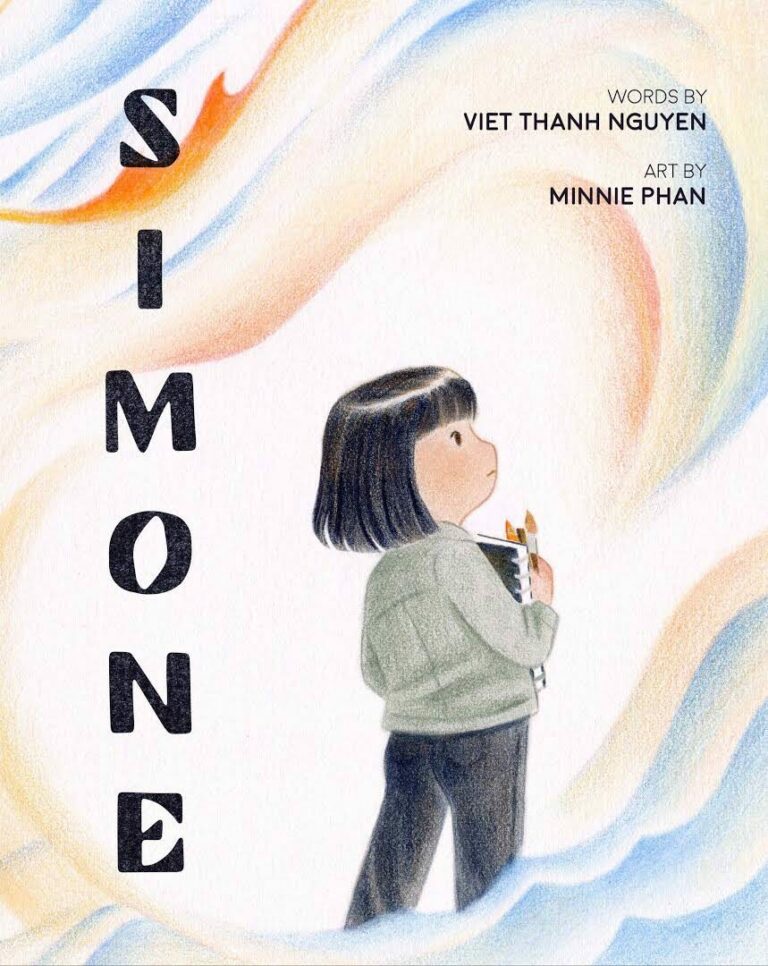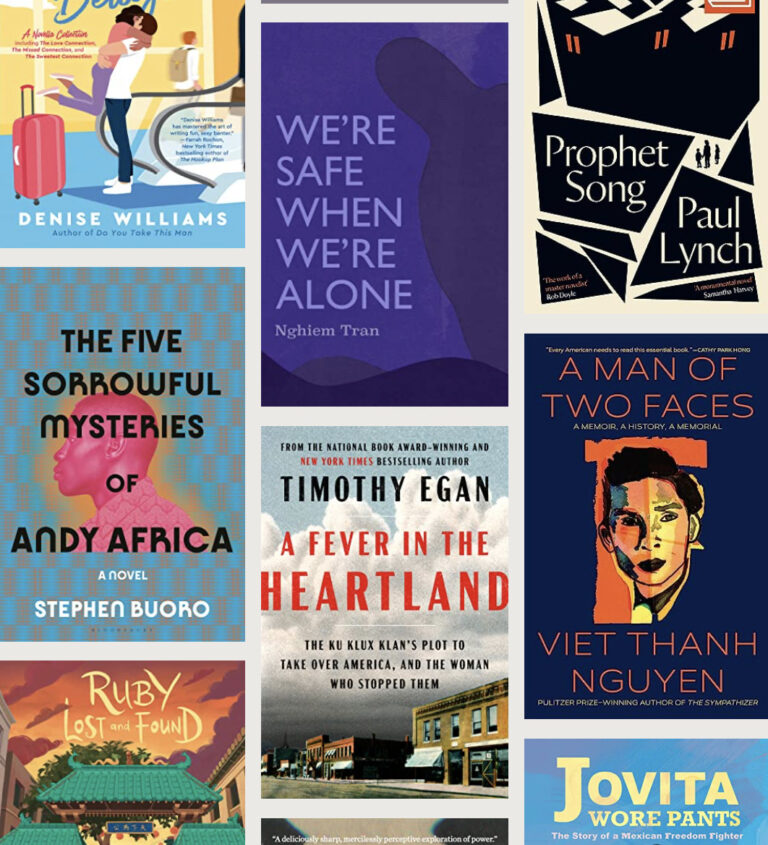David Burr Gerrard reviews The Sympathizer on Barnes and Noble Review.
From time to time, there will be a surge of public arguments over whether the protagonists of novels must be “sympathetic.” This term was on my mind as I read Viet Thanh Nguyen’s spectacular debut novel The Sympathizer, and not merely because of the title. The narrator, an unnamed North Vietnamese spy, would most likely not be considered sympathetic by many American readers (particularly not by those who prefer their characters sympathetic), and yet I cannot remember the last time I read a novel whose protagonist I liked so much. Smart, funny, and self-critical, with a keen sense of when to let a story speak for itself (and when to gloss it with commentary). He’s someone I would like to have a beer with, despite the fact that his life’s work is the betrayal of his friends.
Taking the form of a confession to a Commandant about whom we know nothing until novel’s end, The Sympathizer begins with the Fall of Saigon, as South Vietnamese loyalists, whom the United States have encouraged for years to fight the Northern communists at all cost, must beg for admittance to American evacuation transports. (Nguyen’s family fled South Vietnam when he was four, eventually settling in San Jose.) The narrator—a Captain in the South Vietnamese army – is very conscious of his status as a despised “Bastard,” the product of an illicit union between a French priest and a Vietnamese maid. He’s being evacuated along with, among others, the important General to whom he is an aide-de-camp, and Bon, a childhood friend. Unbeknownst to Bon or to anyone else, the narrator reports to Man, the third member of that group of childhood friends, now working as a spymaster for the Northern communists. The narrator, considering the work of the revolution accomplished, does not want to go to America, but Man insists that he maintain his identity so he can continue reporting on any seditious plans the South Vietnamese develop while exiled in L.A.
As the narrator waits to be rescued from Saigon, he indicts the American war with uncompromising insight and wit. In the passage below, waiting to evacuated from Saigon and chatting with some sex workers who cajole American clients into taking them along, the narrator reflects that many of these women were forced into sex work because Americans destroyed their villages.
Now am I daring to accuse American strategic planners of deliberately eradicating peasant villages in order to smoke out the girls who would have little choice but to sexually service the same boys who bombed, strafed, torched, pillaged, or merely forcibly evacuated such villages? I am merely noting that the creation of native prostitutes to service foreign privates is an inevitable outcome of a war of occupation, one of those nasty little side effects of defending freedom that all the wives, sisters, girlfriends, mothers, pastors, and politicians in Smallville, USA, pretend to ignore behind waxed and buffed walls of teeth as they welcome their soldiers home, ready to treat any unmentionable afflictions with the penicillin of American goodness.
This is sharp, nasty, and so devastating that the reader might be forgiven for silently chanting, as American student anti-war protesters did in the late 1960s, Ho, Ho, Ho, Ho Chi Minh, NLF is gonna win. But Nguyen is not done, and deftly shows us, two pages later and without breaking voice, how the narrator, so clear-sighted about American evils, is willfully blind to the evils of his own side: “What indeed would happen to girls like them once the revolution was victorious? To this matter I confess that I had not devoted much thought.” Though he asserts that he “is able to see any issue from both sides,” he is skilled at looking away when he wants to.
Arriving in Los Angeles, the South Vietnamese refugees are greeted with willful blindness by an America that would prefer not to have to look at these reminders of its own failure. These refugees do not arrive in vaunted immigrant style, full of big dreams. Once they were high-ranking soldiers; now they work as cashiers or janitors, often paid under the table so that they will still qualify for welfare. The narrator is relatively lucky in his cover identity, finding a clerical job at a college and enjoying a brief affair with a colleague, but even he is forced to smile and nod as a boorish white department chair lectures him about what “Orientals” are like.
The refugees devise plots, mostly to distract themselves from the crushing humiliations of their new lives. At one point they suspect a mole in their ranks, obliging the narrator to point a finger at and eventually participate in the murder of a hapless major to deflect suspicion. The narrator insists that the major haunts him in Banquo-like fashion. The extent to which he sympathizes with the major’s widow charms us into forgetting to wonder whether agonizing over this particular crime is merely his way of denying or ignoring others.
Eventually, the narrator’s comrades (read: targets) plan a Bay-of-Pigs-style invasion of Vietnam from Thailand that sounds even less likely to succeed than the actual Bay of Pigs invasion. For most of the group—and particularly for the narrator’s old friend Bon—the invasion appears to be more of a suicide attempt than a serious effort to retake their lost country. The narrator decides that he is going to do what he can to save Bon, a decision that leads to the novel’s breathtaking and terrifying conclusion.
Nguyen, a literature scholar steeped in representations of Asians and Asian-Americans, proves a gifted and bold satirist. In one extended sequence, the narrator becomes an “authenticity consultant” on an Apocalypse Now-like film, a Vietnam War film by a grandiose director known only as “The Auteur” that initially includes no speaking roles for Vietnamese characters. A few are added at the narrator’s prodding, but all of these are so stereotypical that the narrator succeeds only in making the film even worse. Even sharper is Nguyen’s choice for the book that Man and the narrator use to send coded messages: Asian Communism and the Oriental Mode of Destruction, a racist tract by a prominent American foreign-policy intellectual who argues that Asians do not value life as Westerners do and so must be met with overwhelming force. Best of all is the name that Nguyen assigns to the book’s author: the hilariously easy-to-crack code Richard Hedd.
Nguyen’s skill with caricature allows him to poke holes not only in American conceptions of Vietnam, but in the narrator’s conception of himself. Where Nguyen calls this racist intellectual a dickhead and walks away, the narrator is forced by his own deception to be a sycophant, shamefully backtracking when he suggests in Hedd’s presence that perhaps Asians do value life after all. The narrator is constantly supporting what he wants to undermine and undermining what he wants to support—not unlike American foreign policy itself. Seeing both sides comes to mean aiding both sides’ atrocities.
The book opens with an epigraph from Nietzsche about torture, and this book is suffused with an unstated critique not only of America’s conduct in Vietnam but of its torture program following 9/11, the Senate’s extensive documentation of which is unlikely to lead to repercussions for any of its perpetrators. By making us like his narrator so much, Nguyen reminds us of our own complicity in American war crimes. When he struggles to forget or talk around what he has done, it would be dishonest for us not to sympathize.



